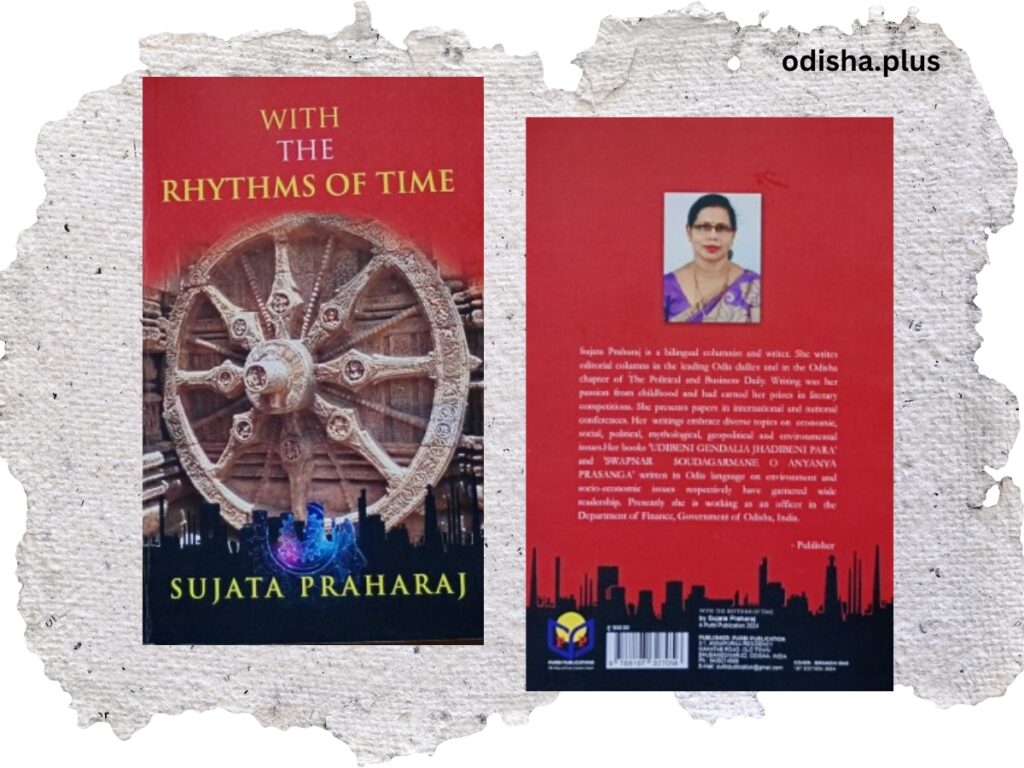the author endeavors to explore the foundational beliefs that shape the representations of Odia culture and the philosophy of life throught his book
Bhaskar Parichha

With The Rhythms of Time
Sujata Praharaj
Purbi Publication
Bhubaneswar
Sujata Praharaj is a columnist and writer proficient in two languages. She contributes editorial columns to prominent Odia newspapers as well as to the Odisha edition of The Political and Business Daily. From a young age, she has been passionate about writing, which has led her to receive accolades in various literary competitions. Additionally, she actively presents research papers at both international and national conferences. Her body of work covers a wide range of subjects, including economic, social, political, mythological, geopolitical, and environmental matters.
In her latest publication, “With the Rhythms of Time,” the author endeavors to explore the foundational beliefs that shape the representations of Odia culture and the philosophy of life, as well as the roles of various actors in environmental catastrophes and socio-economic challenges.
Through approximately forty essays, she coherently illustrates how culture emerges when humans transcend the mere offerings of their natural heritage. The nurturing of the natural environment is thus presented as a crucial aspect of culture, which she elaborates on through various lenses, including rituals, art, history, economic development, and other societal factors.
The latter section of the book addresses the themes of nature’s domination and degradation. The author seeks to challenge entrenched social and cultural mindsets that could contribute to the preservation of the planet. Additionally, she highlights the intrinsic relationship between women and nature, examining how patriarchy and industrial capitalism have played significant roles in precipitating environmental crises.
The third part of the book explores themes where Praharaj uses active and reactive categories to show two different ways of living. She draws on psychological ideas similar to those of Friedrich Nietzsche and Gilles Deleuze to move beyond the reactive state of situations, which helps us improve our ability to act in our social environment. Readers can reasonably conclude that artistic expressions might act as symbolic solutions to significant but often overlooked economic, social, and cultural issues.
In the fourth section, the author directs her focus toward essential elements such as goods and services, banking and finance, trade and commerce, as well as modern technology and employment, which constitute the fundamental structures necessary for a prosperous and stable nation.
Prof. Devi Prasad Misra, Vice-Chancellor of Vikram Dev University, says in the foreword: “The author explores various interdisciplinary themes, examining aspects of our cultural, climatic, economic, and social realities with profound insights and discernment. By embracing innovative ideas and the prudent use of contemporary technology, we can achieve economic advancement while simultaneously transforming our society and safeguarding our rich ethnographic heritage for future generations.”
The book is an impressive accomplishment, covering a wide range of subjects that are both customary and modern, as well as local and international in scope.
(The author is a senior journalist and columnist. Views expressed are personal.)
#Book #BookReview #PhilosophyofLife #Author #Review


























